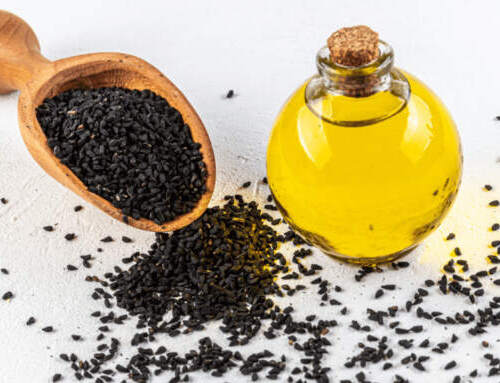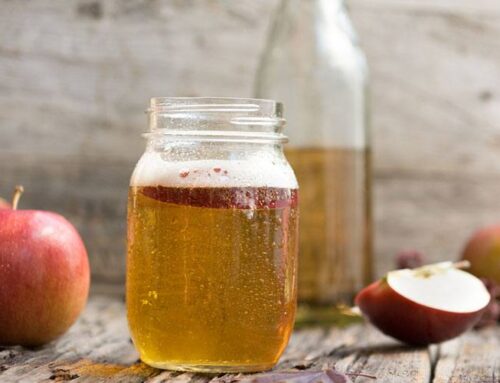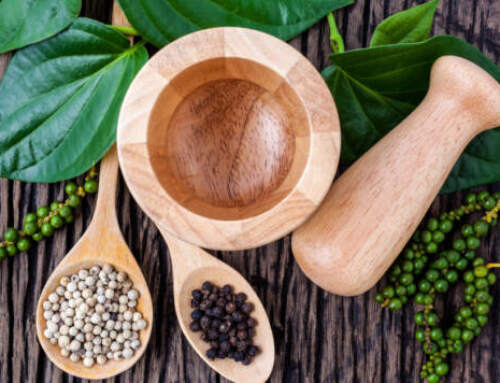Red bell pepper
Vitamin C is crucial for a healthy supply of collagen, and it’s packed into red bell peppers. “Vitamin C is an antioxidant that promotes collagen synthesis,” says Barrient. “In the absence of a vitamin C-rich diet, the body cannot produce collagen as effectively”. Just ½ cup of raw red peppers provides 158% your daily dose of vitamin C with 95 mg per serving. Other good sources of vitamin C include grapefruit, kiwifruit, green peppers, broccoli, strawberries, and oranges. (These 9 foods have more vitamin C than an orange!)
Try this: The next time you’re craving hummus, dip into it with fresh slices of pepper instead of salty pita chips. Fresh peppers provide just as much crunch, but with that good dose of collagen-boosting vitamin C.
Tomatoes
High in the antioxidant lycopene, tomatoes can help protect your collagen supply from environmental damage. “One of the ways we lose our collagen as we age, besides producing less of it, is from damage by pollutants and ultraviolet radiation,” says Mary Stevenson, MD, a dermatologist at NYU Langone. “This damage accelerates the breakdown of collagen. Lycopene can help protect the skin and preserve your collagen levels”. Lycopene is also found in other red and orange vegetables, such as watermelon and pink grapefruit.
Try this: Cheesy tomato slices are a quick (and delicious!) appetizer or side. To make, preheat oven to 400° F. Sprinkle tomato slices with shaved Parmesan cheese, garlic powder, and dried basil. Bake until cheese is bubbly, about 10 minutes.
Salmon
You know you’re supposed to eat fish for heart-healthy fats, but did you those fats can also protect your skin from fine lines and wrinkles? Salmon, in particular, is an excellent source of healthy omega-3 fatty acids. Omega 3’s ease inflammation and prevent collagen breakdown caused by environmental damage—similar to lycopene. “Excessive exposure to sunlight can damage collagen synthesis and promote inflammation of the skin,” says Barrient. “Eating
omega-3 fatty acids, which are most prevalent in seafood, really helps counteract that inflammation and protect your collagen”. Other good sources include avocado, walnuts, and chia seeds.
Try this: For an extra dose of omega-3 fatty acids, top baked salmon with a green salsa of chopped avocado, red onion, and lime juice. (There are 3 types of omega fatty acids—here’s why it’s crucial to know the difference.)
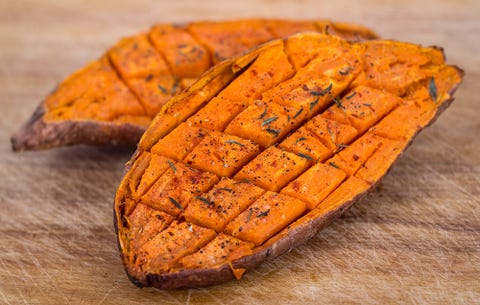
Sweet potato boosts collagen
By eating just one baked sweet potato, you can snag six times your daily value of Vitamin A, and also keep your skin and joints healthy. “Vitamin A actually targets nuclear messaging to encourage your body to make collagen,” says Stevenson. “It will help you boost collagen”. Vitamin A also supports cell growth, and plays a crucial role in the normal formation and preservation of the body’s organs (the largest of which is your skin), according to the National Institutes of Health. In addition to sweet potatoes, carrots, cantaloupe, mangos, and apricots also contain Vitamin A.
Try this: Add sweet potato puree to a smoothie for a creamy drink that nods to the fall season. It’s particularly delicious blended with frozen bananas and a touch of nutmeg or cinnamon. (See how to blend sweet potatoes and other veggies into mouthwatering smoothies here.)
Lean turkey
The production of collagen requires many essential amino acids. For this reason, it’s important to consume enough protein, which is made out of amino
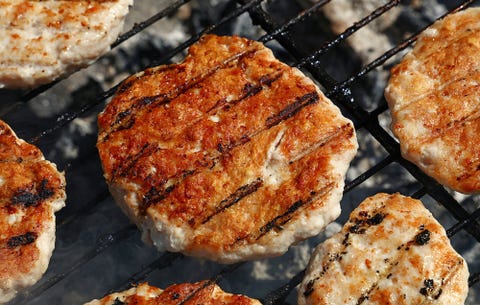 acids. Turkey is a good source of lean protein, plus lysine, one of the major amino acids that boost collagen production. “The three most common amino acids involved in the synthesis of collagen are proline, glycine, and lysine,” says Barrient. “Lysine is an essential amino acid, meaning our body can’t naturally synthesize it, so we need to get it from food products.” Turkey is also rich in choline. Choline is converted into glycine for the production of collagen. If you’re vegetarian, you can get lysine from non-animal sources such as soybeans—particularly tofu—and cashews.
acids. Turkey is a good source of lean protein, plus lysine, one of the major amino acids that boost collagen production. “The three most common amino acids involved in the synthesis of collagen are proline, glycine, and lysine,” says Barrient. “Lysine is an essential amino acid, meaning our body can’t naturally synthesize it, so we need to get it from food products.” Turkey is also rich in choline. Choline is converted into glycine for the production of collagen. If you’re vegetarian, you can get lysine from non-animal sources such as soybeans—particularly tofu—and cashews.
Try this: Toss ground turkey into a cheesy pasta dish, or use in lieu of ground beef in a sloppy Joe sandwich (for an extra collagen-producing boost, add chopped raw red peppers to the mix). Alternatively, sauté tofu as the lean protein source in your next stir-fry.


